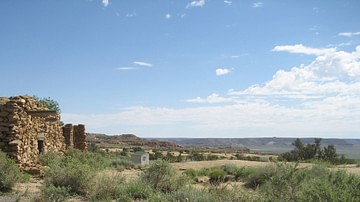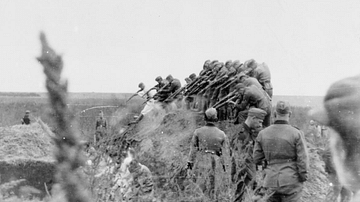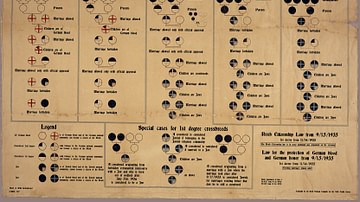Search
Did you mean: Temple?
Search Results

Video
The Reason Why People Died So Young In The Middle Ages
Reasons why such low estimates for life expectancy during the MIddle Ages are often tossed around. From infant mortality skewing the stats, to the risks of childbirth and disease.

Article
How the Hopi Indians Reached Their World
How the Hopi Indians Reached Their World is the creation story of the Native American Hopi nation (the Hopi tribe of Arizona) located today within the Navajo Nation reservation. The legend details the ascent of the Hopi from below the earth...

Article
The people of Iron Age Britain
The people of Iron Age Britain were physically very similar to many modern Europeans and there is no reason to suppose that all Iron Age Britons had the same hair colour, eye colour or skin complexion. Iron Age Britons spoke one or more Celtic...

Article
Reactions to Plague in the Ancient & Medieval World
Throughout history, epidemics and pandemics of plague and other diseases have caused widespread panic and social disorder even, in some instances, when the people of one region were aware of a pervasive infection elsewhere. In the case of...

Article
Religion in Ancient China
Religious practices in ancient China go back over 7,000 years. Long before the philosophical and spiritual teachings of Confucius and Lao-Tzu developed or before the teachings of the Buddha came to China, the people worshipped personifications...

Definition
Einsatzgruppen - The Nazi Killing Squads of WWII
Einsatzgruppen ('deployment groups') were secret Nazi killing units, who systematically sought out and murdered civilians identified as enemies of the Third Reich. Operating without any legal restrictions in territories newly conquered by...

Definition
Moses
Moses (c. 1400 BCE) is considered one of the most important religious leaders in world history. He is claimed by the religions of Judaism, Christianity, Islam and Bahai as an important prophet of God and the founder of monotheistic belief...

Article
Daily Life in Ancient China
Daily life in ancient China changed through the centuries but reflected the values of the presence of gods and one's ancestors in almost every time period. Villages like Banpo show evidence of a matriarchal society, where there was a priestly...

Definition
Nuremberg Laws
The Nuremberg Laws of September 1935 were a set of racial laws which set out a number of restrictions on Jewish people such as depriving them of the right to German citizenship and right to marry non-Jews. Amendments to the laws then defined...

Interview
Interview: Gods of Thunder by Tim Pauketat
Join World History Encyclopedia as they chat with Tim Pauketat all about his new book Gods of Thunder: How Climate Change, Travel, and Spirituality Reshaped Precolonial America, published by Oxford University Press. Kelly: Thank you so much...